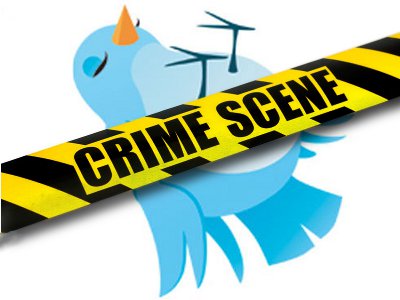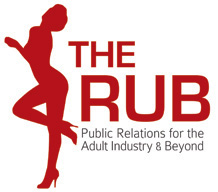Crimes Against Twitter

By Erika Icon
YNOT – As a publicist and somewhat of a social media expert, I spend a lot of time on Twitter — not just tweeting, but also watching. I keep an eye on what my clients say, because image is everything, but based on some of the behavior I’ve seen on Twitter, I think we may need to call in the tweet police.
Yes, it’s important to establish and maintain a sense of camaraderie with fans and business contacts, but seriously: Twitter isn’t a good place to vent, spill secrets or get too personal.
In my professional opinion, these are the seven worst violations of the unwritten Twitter Code of Conduct:
Bashing the media
I have seen performers fight with websites and magazines over a mention or a review the performer didn’t like. What they don’t realize is the media is doing them a huge favor by covering them at all. Even a simple tweet from an established website can bring a performer tons of new followers.
Remember: Performers and others in a fan-based industry need the press, not the other way around. Most members of the media have more requests for their attention than they can handle; it only makes sense for them to give the most attention to those who are friendly and helpful. Offend the media, and the best you can hope for is to be ignored. At worst you may find yourself blacklisted by more than one publication. Writers and editors at competing publications talk to each other, and many in the adult press corp have known each other for years.
Bad news travels fast; it can ruin your reputation and ultimately your career in the biz. If you have gotten into a virtual shouting match with the media, apologize — and really mean it. You might be able to mend a few fences.
Fighting with fans
Fans buy movies, watch video on demand and let studio know they’re eager to see new material from their favorite performers. They tell their friends and acquaintances which performers they like — and conversely, which ones irritate them. Word of mouth is a powerful viral engine.
Yes, fans sometimes tweet things that are offensive, upsetting and embarrassing. You can’t stop them, but you can change your reaction. If it’s one tweet, ignore it. If a single tweet turns into harassment, block the tweeter and report them for spam.
Fighting with a fan and/or making snarky comments about him or her makes you look like the bad person. Other fans may worry they will be next, or they’ll lose interest because they don’t care to watch a flame war.
Arguing with anyone on Twitter is a bad idea. Be a class act and just don’t go there.
Slamming the reps
Agents, managers, publicists and other handlers work very hard for their clients. At some point, they will probably make a mistake or do something upsetting. That’s just an unfortunate fact of life. Deal with those issues one-on-one with the person involved. Whatever you do, don’t air the grievance in public. That won’t help your image.
Let’s say you go on a Twitter rant, drop your agent and look for a new one. Just like members of the media, agents, publicists and managers talk to each other. Most of them also are social media savvy. Before a new representative agrees to take you on as a client, he or she probably will check you out online. If the prospective agent finds the rant, it’s likely he will call your former representative — his professional colleague — to inquire about what happened. And then he’s liable to worry you’ll do the same thing to him in the future.
Heat-of-the-moment online rants can make it incredibly difficult for a performer to find future representation, and that can ruin a career. Don’t build yourself a reputation as a difficult client. Sit down and talk directly to the person with whom you have a problem instead of bringing everyone in Twitter Land into the discussion.
Bad-mouthing the big dogs
Do you want to be hired to perform in scenes? What about feature dancing? Don’t ever slam a studio, director, producer, club owner, promoter or other individual with the power to hire you. Even if you don’t talk about them by name, in an industry as small as adult, there’s no challenge to figuring out the subject of your rant. Talk about biting the hand that feeds you! You could be branded “difficult” or worse. Enough said.
Revealing too much
No matter how good an idea it may seem at the time, it’s never appropriate to tweet while you’re drunk or high. Don’t even talk about drug use on Twitter. Some studios won’t hire performers who use drugs of any kind, including pot. One tweet about drug use could cost you the opportunity of a lifetime.
What you do off the set is your business, but keep it to yourself. And, when you’re out at industry events, make sure you’re not high or sloppy drunk. That kind of behavior is bad for your image — and never a good idea in general.
Getting too personal
Some information is called “personal” for a reason. No one needs to know you were cited for drunk driving, your fiancé is in jail, you contracted a sexually transmitted infection, your girlfriend or spouse cheated on you, etc. Sharing too much personal information is one way to become known as a drama queen, and that will turn off fans, directors, producers and almost everyone else.
It’s OK to talk about some aspects of your life. Your fans do want to know what you do off-set … within reason. Talk about going out to lunch, buying new shoes, your pets, what you do to unwind. Keep your tweets positive and not too personal.
Begging
Many performers have wish lists, and that’s great. Some fans enjoy giving gifts. Put a link to your list in your Twitter bio and perhaps mention it occasionally. Don’t tweet the list multiple times a day. Don’t beg for a computer because yours is broken, or a dress to wear to the AVN Awards.
Asking your fans to buy your movies because you’re broke or because you think they need to support you isn’t smart either. Asking for money is classless. All these things will have the reverse effect, convincing your fans they don’t love you after all.
Be smart and use common sense when you interact on social media. Twitter is a tremendous boon to the adult entertainment industry, but it can be a double-edged sword. Be careful not to cut yourself.
 Erika Icon, owner of The Rub PR, possesses more than seven years’ experience in the adult entertainment industry. She has worked as a retail buyer; writer; sex advice columnist; DVD, website and toy reviewer, and publicist. Over the years, Icon has forged relationships with performers, studio owners, sales personnel, distributors and media, and she uses those connections to help her promote her clients and their brands in both adult and mainstream markets.
Erika Icon, owner of The Rub PR, possesses more than seven years’ experience in the adult entertainment industry. She has worked as a retail buyer; writer; sex advice columnist; DVD, website and toy reviewer, and publicist. Over the years, Icon has forged relationships with performers, studio owners, sales personnel, distributors and media, and she uses those connections to help her promote her clients and their brands in both adult and mainstream markets.










